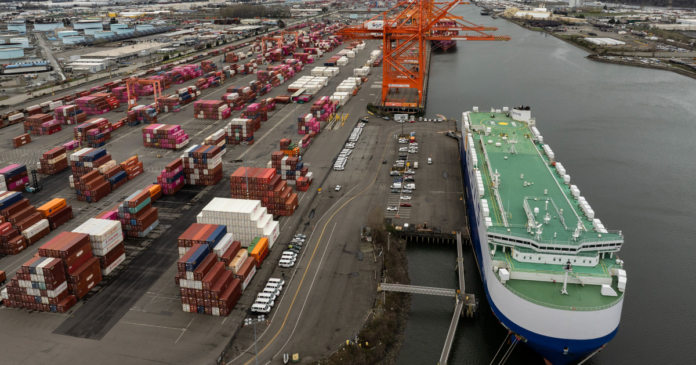Voters in Waunakee, Wisconsin, had tariffs top-of-mind on Tuesday as they lined up for the state’s Supreme Court election.
The race drew national attention as an early test of Donald Trump’s policy, which has prominently featured tariffs. Susan Crawford, who was backed by Democrats in the technically nonpartisan election, won with 55% of the vote.
Waunakee residents were conflicted about what tariffs would mean for American-made goods, but many admitted it could hit their wallets. Economists say that’s a justified concern, since tariff costs are generally passed along to consumers. Voter Lynn Cook said she just bought a new car for her family because she worried tariffs would make it more expensive.
“We were thinking of all the tariffs and everything, and how everything was going to go up,” she said.
Eric Bundy, who voted for Brad Schimel, the more conservative candidate, grew up in Pennsylvania and attributes factory closures there to free trade agreements. He’s willing to take a bit of a financial hit in the short term if it means bringing jobs back.
“I’m optimistic and I’m hopeful, he said, adding: “Yes, I will accept some, but obviously we all have our limits when it comes to our pocketbook.”
Others weren’t so sure the trade-off was worth it.
“I don’t know if the good is outweighing the harm that is being done,” said voter Andrew Dodge, who works in education. “I think we’re isolating ourselves as a country and not in a good way.”
‘Liberation Day’ reciprocal tariffs announcement could shake up global trade
RELATED ARTICLES



